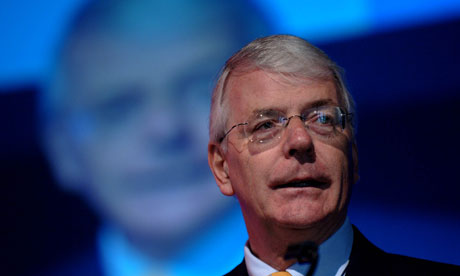Illness introduced me to a beautiful network of dependence – and a struggle for autonomy I can't win on my own

The discipline of nursing converts science into care. Photograph: Bert Hardy/Getty Images
Now entering my fifth year of living with multiple myeloma, a haematological cancer, I reflect back on a roller-coaster ride of symptoms, treatments and side effects. Whatever else this experience has been, it's been an education. But what exactly have I learned? To begin with, that any glib answer to the question misses the core of the experience – the complex dialectic of being ill, which is a social as well as physical condition. For me the experience has led to a heightened awareness of both our intricate dependence on others and our deep-seated need for independence. Sitting with my IV drip, I like to think about all the human labour and ingenuity that come together in this medical moment. I could dedicate the rest of my life to this exercise and still not complete the inventory. The first circle of dependence is immediate and sometimes intimate. Partners, friends, doctors, nurses, cleaners, porters.
Beyond them is a vast network of people I never see: pathologists, pharmacists, IT engineers, appointments managers. Everyone who has anything to do with maintaining the supply of medications or the functioning of equipment or getting me to and from hospital. Everyone who makes sure the lights are on and the building safe. The whole intricate ballet that is a functioning hospital. One misstep, and the whole breaks down, with potentially dire consequences. Beyond that, I'm dependent on a long history of scientific development to which individuals and institutions in many countries have contributed. From the British chemist Bence Jones identifying the protein associated with multiple myeloma in the 1840s to the pathologist and one-time film star Justine Wanger developing the IV drip in the 1930s; from the first experiments with chemotherapy (a byproduct of chemical warfare) in the 1940s, through the protracted struggle to master the art of toxicity (a dialectic of creation and destruction, if there ever was one), to the discovery of proteasome inhibitors in the 1990s and the creation of new "targeted therapies", like the one I'm currently receiving. Without innumerable advances in immunology, biochemistry, chemical engineering, statistics and metallurgy, to name but a few, I wouldn't be where I am now – in fact I wouldn't be at all. The drip flowing into my vein is drawn from a river with innumerable tributaries. It is an entirely rational, intelligible process but no less miraculous for that. And it's not just a story of science. Alongside that – and necessary to it – is the long history of the hospital, of the discipline of nursing, of the social developments that made it possible to convert raw science into practical care. I'm acutely conscious of how dependent I am on those who built and sustained the NHS – including, pre-eminently, generations of labour movement activists and socialists.
And as I sit with my IV drip, I'm mindful of those in government and business who would smash the delicate mechanism of the hospital and shatter the network of dependence that sustains me. I'm being kept alive by the contributions of so many currents of human labour, thought, struggle, desire, imagination. By the whole Enlightenment tradition, but not only that: by older traditions of care, solidarity, mutuality, of respect for human life and compassion for human suffering. The harnessing of science, technology and advanced forms of organisation and information to compassionate ends is by no means automatic. It leans on and is only made possible by the conflict-riddled history of ethical and political development. Beautiful as it is, this network of dependence is also frightening. Restrictions in capacity and mobility are hugely frustrating, and relying on others to supplement them is not a straightforward business – for patient or carer. I often feel I'm engaged in a never-ending battle for autonomy. I fight it out in relation to institutions, experts, medications, means of mobility, forms of diet.
Not to mention the vital effort to live a life beyond illness, to hold on to that kernel of freedom that makes you who you are. Paradoxically the struggle for autonomy is one you can't win on your own. You need allies, and part of being a carer is being an ally, not a nursemaid or controller. Independence is the stuff of life. But you can achieve it only through dependence on others, past and present. That's a truth driven home to the cancer patient but applicable to all of us. Illness is not an ideology-free zone.
Certainly not for the government, which aims to divide sufferers into acute cases deserving of support, and less acute ones that must be forced back into the labour market, where our only function will be to undercut wages. This is one reason why resistance to the attacks on benefits for the disabled ought to be a central plank of the anti-cuts movement. The crisis facing the ill is an extreme form of the crisis facing the majority of the populace. We don't want charity – the form of dependence that makes independence impossible – but rights, and the resources to exercise those rights. Speaking for myself, taking part in anti-cuts activity is some of the best therapy available, an unashamed acknowledgement of social dependence and at the same time a declaration of political-spiritual independence.


